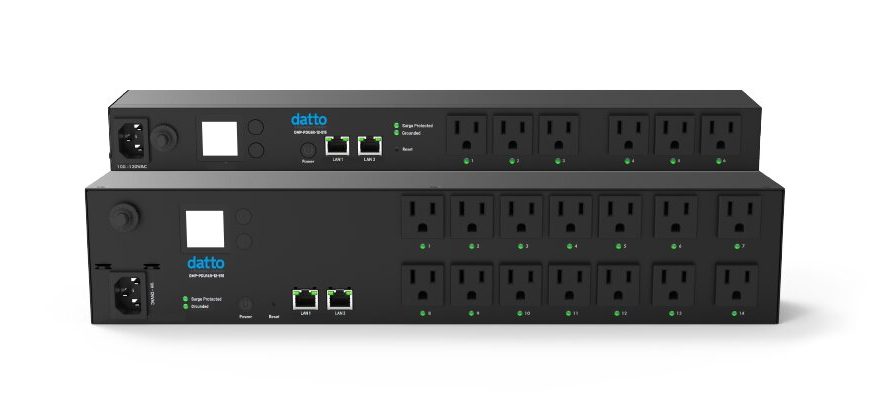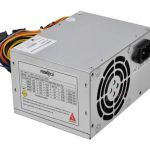In today’s technology-driven world, managing power efficiently is crucial, especially in data centers and IT environments where power distribution plays a significant role in ensuring uptime and productivity. One essential component in these setups is the Power Distribution Unit (PDU). PDUs are designed to distribute electrical power to multiple devices, ensuring that IT hardware and equipment receive stable and reliable power. This post explores the functionality, types, benefits, and importance of PDUs in IT environments and sheds light on how they contribute to efficient power management.
What is a Power Distribution Unit (PDU)?
A Power Distribution Unit (PDU) is an electrical device that distributes power to various connected hardware and devices within an IT environment, such as servers, networking equipment, and storage units. It is a crucial component in data centers, server rooms, and even smaller IT setups where multiple devices operate simultaneously. PDUs are designed to handle the high demand for electricity, manage power loads efficiently, and ensure that all connected devices receive a steady and stable power supply.
Types of Power Distribution Units
PDUs come in various types, each designed for specific needs and applications. The choice of PDU often depends on the complexity and power requirements of the IT infrastructure. Some common types of PDUs include:
- Basic PDUs
Basic PDUs are the simplest form and provide a straightforward power distribution function. They are ideal for small server rooms or IT setups where there is a limited need for advanced power management. Basic PDUs typically lack monitoring and management features but are reliable for distributing Power Devices to multiple devices. - Metered PDUs
Metered PDUs offer an upgrade from basic models by providing real-time monitoring of power usage. These units allow IT professionals to measure the power consumption of connected devices, helping in efficient power management. Metered PDUs are particularly useful in environments where energy efficiency is prioritized, as they provide insight into power usage patterns and potential areas for optimization. - Switched PDUs
Switched PDUs provide both power distribution and remote control capabilities. They allow administrators to remotely power on/off individual devices connected to the PDU. This is especially helpful in large data centers where physical access to equipment might be limited. By remotely managing power, IT professionals can troubleshoot issues, perform maintenance, and ensure that equipment is functioning as intended, all without the need for physical intervention. - Intelligent PDUs
Intelligent PDUs, also known as smart PDUs, offer the most advanced features among all types. These PDUs combine metering and switching functionalities and include additional capabilities such as environmental monitoring, alerts for power anomalies, and integration with data center management software. Intelligent PDUs are ideal for large-scale data centers where real-time monitoring and management are critical to ensuring continuous operation and energy efficiency.
Benefits of Using PDUs in IT Environments
PDUs provide several benefits that make them indispensable in IT and data center environments. By distributing power efficiently and managing energy consumption, they help maintain optimal operation and reduce downtime. Here are some key benefits:
- Enhanced Power Management
PDUs enable effective power management by distributing electrical power evenly across multiple devices. With metered and intelligent PDUs, IT administrators can monitor power usage and adjust configurations to optimize power consumption, leading to cost savings and better energy efficiency. - Reduced Downtime
In data centers, any downtime can be costly and disruptive. PDUs help mitigate the risk of downtime by ensuring a consistent power supply to all devices. In the case of intelligent PDUs, administrators can receive alerts when power anomalies occur, allowing them to respond proactively and prevent potential issues before they escalate. - Remote Management Capabilities
Advanced PDUs, such as switched and intelligent models, allow for remote management of power settings. This capability is vital in large and complex environments where physical access to all equipment may not be feasible. By controlling power remotely, IT teams can troubleshoot and fix issues without the need for on-site visits, saving time and resources. - Improved Scalability
PDUs are designed to handle the growing demands of IT environments. As businesses expand and add more hardware, PDUs can easily accommodate new devices, ensuring that power is distributed effectively across all equipment. This scalability makes PDUs suitable for dynamic IT setups that frequently evolve with business needs.
The Role of PDUs in Data Centers
Data centers are complex environments that host numerous servers, storage systems, and networking devices. Managing power efficiently in such environments is crucial to prevent overheating, ensure stability, and maintain continuous operation. PDUs play a pivotal role in data centers by providing reliable power distribution and management. Intelligent PDUs, in particular, offer data center administrators the tools needed to monitor power usage in real-time, manage energy consumption, and optimize power distribution.
PDUs also aid in managing energy efficiency in data centers. By using intelligent PDUs, administrators can collect data on power usage and identify areas for improvement, such as optimizing server workloads and adjusting cooling systems. This focus on energy efficiency not only reduces operational costs but also minimizes the environmental impact of data centers, which are known for their high energy consumption.
Choosing the Right PDU for Your Needs
Selecting the right PDU for your IT environment depends on several factors, including the size of your setup, power requirements, and the level of monitoring and control needed. For small office environments, basic or metered PDUs may suffice, offering essential power distribution and usage tracking capabilities. However, in larger and more complex setups, such as enterprise data centers, intelligent PDUs are often the preferred choice. These advanced units offer real-time monitoring, environmental sensors, and remote control features that enhance power management and help ensure continuous operation.
Installation and Best Practices for PDUs
Installing a Power Distribution Unit PDU requires careful planning to ensure optimal power distribution and cable management. IT administrators should follow best practices, such as:
- Proper Load Balancing: Ensuring that the power load is evenly distributed across all connected devices to prevent overloads and equipment failure.
- Cable Management: Using cable management solutions to keep cables organized, reduce clutter, and improve airflow within racks.
- Monitoring and Alerts: Setting up monitoring systems to receive alerts for any power anomalies or fluctuations, enabling quick responses to potential issues.
Regular maintenance of PDUs is also essential to ensure their reliability and longevity. Periodic checks and software updates for intelligent PDUs can help prevent failures and improve the overall efficiency of power management systems.
The Future of PDUs in IT Environments
As IT environments continue to evolve with advancements in Technology, PDUs are also expected to become more sophisticated. The integration of artificial intelligence (AI) and machine learning (ML) technologies into PDUs is likely to enhance their capabilities further. Intelligent PDUs equipped with AI could predict power usage patterns, optimize power distribution automatically, and proactively manage equipment based on historical data.
Additionally, with the growing focus on sustainability, future PDUs may include features that support green energy initiatives. For example, they could integrate with renewable energy sources like solar power systems, enabling businesses to reduce their carbon footprint and operate more sustainably.
Conclusion
Power Distribution Units (PDUs) are integral to modern IT environments, providing efficient and reliable power management solutions. From basic to intelligent models, PDUs offer a range of capabilities designed to meet the needs of different setups, whether small office networks or large data centers. By choosing the right type of PDU and implementing best practices, businesses can enhance power management, reduce downtime, and improve overall energy efficiency.
As Technology advances, PDUs are set to become even more intelligent, integrating AI and green energy solutions. Investing in the right PDU and leveraging its features will not only optimize power distribution but also contribute to a sustainable and efficient IT environment.
















